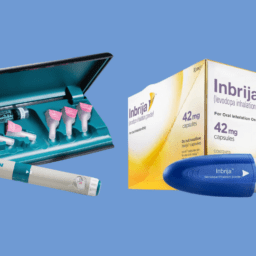When you take medication for Parkinson’s, the best outcome is for your medication to work so well that you rarely or never experience bothersome Parkinson’s symptoms.
For some people, this is a regular experience, especially shortly after their diagnosis. However, as your time living with Parkinson's increases, it becomes more likely that your medication's effectiveness will vary throughout each day.
Fortunately, you may be able to improve how well your medication controls your symptoms. There are three critical parts of maximizing your medication's effectiveness:
- Having a strong relationship with a knowledgeable care team
- Ensuring that the team has an accurate understanding of your symptoms so they can recommend the best plan for your specific circumstances
- Following the plan and providing good feedback to your team about how the plan does and doesn't help you control your symptoms.
MEDICATION ADHERENCE MATTERs
Medication adherence is how well you follow the medication-related aspects of your care plan. Low adherence to a medication plan often leads to negative impacts on quality of life.
There isn’t a unanimous definition of “high” or “low” levels of adherence, but the authors of a 2022 study defined “suboptimal” adherence as when you take less than 80% of your prescribed medication on-time or as indicated by your care team’s instructions.
The authors also found that sub-optimal medication adherence is associated with "poor control of symptoms, poor outcomes, and higher overall healthcare costs, as well as with unnecessary therapy adjustments, such as increasing the doses or introduction of additional drugs." Importantly, they also say that poor adherence "can produce diagnostic uncertainty and point clinicians to an erroneous conclusion about atypical Parkinsonism conditions."
Other details from research about medication adherence in Parkinson's includes:
- A 2021 study of 800 people with Parkinson’s in Latin American countries found that nearly 60% of people do not follow their medication plan well and that hospitalization rates were lower for those who were better at following their medication plan. A 2014 study reported similar findings. This study reported that those who had more success following their medication plan had fewer hospital and emergency room visits, as well as lower overall health care costs.
- Regarding overall costs, authors of a 2010 study report that although those with lower adherence to their medication plan spend less on their prescriptions, their overall medical costs tend be around ~66% higher than those with higher adherence.
- There are many factors influencing medication adherence, and different studies report different estimates of adherence rates. For example, a 2016 study focusing on those who took dopamine agonists found 87% of 314 participants had low adherence to their medication plan, and a 2014 study of 7,583 people on Medicare found approximately 25% of people had low adherence.
INFLUENCES ON MEDICATION ADHERENCE
A common theme in research about medication adherence is that people who take fewer medications and fewer doses of those medications tend to have better adherence. This is understandable: if you only take one pill a day, it’s easier to take it on time.
For example, many people with Parkinson’s initially take only levodopa to manage their symptoms. This is called “levodopa monotherapy.” If this is what you decide with your care team, it is possible that your provider will say that you can take your doses “as needed,” or whenever your symptoms are bothersome
It’s also important to know that this “as needed” direction is not universally endorsed by Parkinson’s experts. Moreover, as you live longer with Parkinson's, it is likely that you’ll need to start taking your medication on a schedule, so if your care team says you can take your levodopa "as needed," ask them at every visit if this recommendation is still a good one. You should do this because the more complicated your treatment plan becomes, the more important timing your medication becomes.
One reason for this is that timing your doses of medication may decrease the impact of levodopa-induced dyskinesia.
BELIeFS ABOUT DYSKINESIA
Many approaches to treating Parkinson’s symptoms involve dopaminergic therapy. These treatments elevate dopamine levels in the body. Dopamine is involved in your ability to start and stop moving, and when you have too much or two little dopamine, you may experience uncontrolled movements.
Dyskinesia is one example. Since it results from having peaks and valleys in the levels of dopamine in your body, there has been some controversy about whether Parkinson’s medication causes dyskinesia. The answer is widely believed to be that even though higher doses of dopaminergic therapy are associated with dyskinesia, that levodopa does not cause a person to experience dyskinesia earlier.
Still, some people choose not to take their medication as indicated because they believe taking the medication may cause them to experience dyskinesia earlier than they otherwise would. This decision should be discussed with your care team.
LATER INFLUENCES on MEDICATION Adherence
While current research clearly indicates that taking levodopa earlier in your time living with Parkinson's does not cause earlier onset of dyskinesia, taking higher doses of dopaminergic therapy, especially levodopa, is associated with dyskinesia. Because of this, some people who require higher doses to manage their symptoms may attempt to limit their dyskinesia by skipping doses of medication.
This is understandable, but it is often counterproductive. Skipping doses may result in your symptoms being difficult to predict, which can result in falls and other complications.
OTHER INFLUENCES ON MEDICATION ADHERENCE
- A 2022 study found significant association between low adherence and younger age of onset, higher levodopa doses, hallucinations, and motor fluctuations. Note that the average age in this study was approximately 60 years.
- A 2021 study found that treatments taken once daily were associated with better adherence. This study also found that men had lower adherence than women and that issues with sleep, fatigue, mood, cognition, and incontinence were associated with lower adherence. In this study, neuropsychiatric issues were also associated with low adherence.
- A small 2012 study found medication adherence to be inversely proportional to the daily dose; for every 100‐mg increase in levodopa dose, the risk of adherence failure is increased by 1.86 times.
- A 2015 study found younger age and presence of comorbidities were associated with poor adherence. Note that the average age in this study was approximately 60 years.
TIPS FOR BETTER MEDICATION ADHERENCE
DECREASE “PILL BURDEN”
If you are at greater likelihood of having low adherence to your medication schedule, you might benefit from taking medication that requires you to take fewer overall doses each day. Examples include:
- Rasagiline or Selegiline, which can be used as a once daily monotherapy or as an add-on to extend how long levodopa doses last
- Stalevo, a formulation of levodopa that contains an additional medication that makes each dose last longer
- Controlled- or extended-release formulations of levodopa which can allow you to take fewer doses each day
Note that a 2016 study that explored adherence rates for people who took dopamine agonists found no difference in medication adherence between people who took immediate-release formulations of dopamine agonists and people who took an extended-release formulation. There are multiple possible explanations for this, including the troublesome side effects that some people may experience when taking a dopamine agonist.
USE TOOLS
There are also tools you can use to help you improve your medication adherence. Two low-tech options are pill sorters and a notebook or spreadsheet.
Using a pill sorter to distribute your daily doses is an easy way to ensure you take the right number of pills each day. Life gets busy. It can be easy to forget.
It’s also useful to keep a record of when you take your doses. You can do this by hand in a small notebook, or you can do this using a computer spreadsheet. Some people even make surveys for themselves using an online tool like Google Sheets or Microsoft Forms that they can access via a computer, tablet, or phone. This option allows you to open a webpage and simply click buttons to indicate when you take your medications. This can also be used to track when you’re experiencing certain symptoms.
TIMERS
Using an online form or a notebook doesn’t help you take your doses on-time. One straightforward, low-tech way to minimize missed doses is to set alarms on your phone or other device.
There are also special pill bottle caps you can buy that feature built-in timers and alarms.
TECH TOOLS DESIGNED FOR PEOPLE WITH PARKINSON’S
There are also smartphone applications like Strive PD, NeuroRPM, PD Buddy, Parkinsons ON, each of which allows for medication-reminder alarms and has additional special features to help with other aspects of living with Parkinson’s.
NeuroRPM and Strive PD can also use an Apple Watch to automatically track dyskinesia and tremor. These apps are also able to produce charts showing doses of medication taken in relationship to when you experience symptoms.
REASONS FOR HOPE
It’s not easy to stick with your medication plan. In addition to side effects, sometimes life just gets in the way, and you may forget to take a dose.
It is also not easy—as Davis Phinney Foundation board member Kevin Kwok recently wrote—to accept the slow progress in developing new treatments for Parkinson’s.
Fortunately, there are new treatments on the horizon. Three stand out as potentially helpful for improving medication adherence.
First, there is a new form of extended-release levodopa, called IPX203 or CREXONT, which was approved on for use in the United States on August 7, 2024.
There are also two continuous subcutaneous infusion levodopa systems that in final stages of development and which may be available soon. You can learn more about these in our recent webinar recording about emerging levodopa formulations, and you can read about the current status of these treatments in the press releases from Neuroderm and AbbVie.
While these reasons for hope are not cures for Parkinson’s—and they won’t resolve the challenges of medication adherence on their own—they may improve your medication adherence so you can live well today.
ADDITIONAL RESOURCES
What is Parkinson’s Dyskinesia
The Role of Care Partners in Medication Adherence
Adherence to Medication Using Adherence to Refills and Medications Scale
Thank you to our 2024 Peak Partners, Amneal and Mitsubishi Tanabe Pharmaceuticals for supporting our blog content in 2024.



















